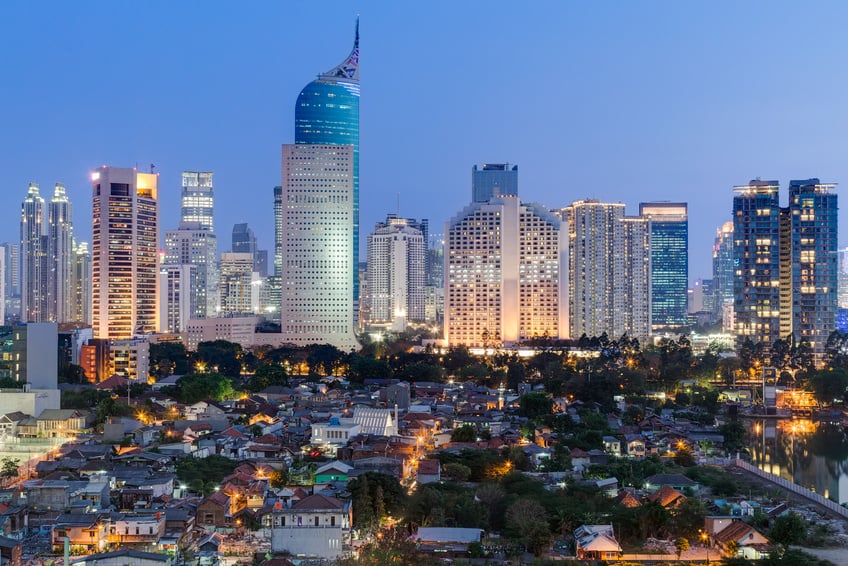This report, the third in our Asia Pacific Business Renewal Series, explores how digital transformation (DX) has become a driving force in business decision making, and how it will shape the business landscape over the decade to come. As companies respond to shifting demand patterns and propel their DX agenda, the conversation turns to areas such as managing emerging risks, creating value from new technologies and aligning DX efforts with business renewal.
This report, the first of four in our Asia Pacific Business Renewal Series, will delve into how businesses view rising protectionism, regulatory scrutiny and foreign investment restrictions, and how these views are directly impacting their supply chain strategies.
In brief On 2 November 2020, President Joko Widodo enacted Law No. 11 of 2020 on Job Creation (“Omnibus Law”), covering amendments to various laws and regulations in Indonesia, including on halal product assurance. Article 48 and Article 185 (b) of the Omnibus Law mandated the Government to issue new…
On 22 October 2020, the Minister of Health (MOH) issued MOH Regulation No. 28 of 2020 on the Procurement of Vaccines for Corona Virus Disease 2019 (“COVID-19”) (“MOH Regulation 28”). MOH Regulation 28 is an implementing regulation of the Presidential Regulation No. 99 on the Procurement of COVID-19 Vaccine and Vaccination of COVID-19 (“PR 99”). We have addressed some of the key takeaways under PR 99 in our previous client alert. You can find the link to the client alert here.
MOH Regulation 28 regulates on four main themes of COVID-19 vaccine procurement: (i) types and amount of vaccine for procurement, (ii) procedure for procurement of vaccines, (iii) procedure for payment for vaccines and (iv) guidance and supervision on the procurement of vaccines.
As stipulated under PR 99, MOH has appointed PT Bio Farma (Persero) (“Bio Farma”) as the state-owned enterprise that will lead the procurement and distribution of COVID-19 vaccine in Indonesia. MOH Regulation 28 applies for all COVID-19 vaccines yet to come, not limited to the one that is being developed under the partnership between Government of Indonesia (GOI) (i.e., through Bio Farma) and Sinovac.
Click to read Digital healthcare, a globally booming market, has been catalyzed by the events of COVID-19. In Asia Pacific, in particular, a rapidly expanding population, an empowered and tech-savvy middle class and physician shortage has created the perfect conditions for digital health innovation. A new era of digital healthcare…
On 5 October 2020, the Parliament approved the job creation law (RUU Cipta Kerja, commonly known as the “Omnibus Law”). The Omnibus Law amends a number of existing laws. On 5 October 2020, the Parliament approved the job creation law (RUU Cipta Kerja, commonly known as the “Omnibus Law“). The…
In brief On 5 October 2020, the Parliament approved the job creation law (RUU Cipta Kerja, commonly known as the “Omnibus Law”). The Omnibus Law amends a number of existing laws, including the following: Law No. 7 of 2014 on Trade (“Trade Law”) Law No. 39 of 2009 on Special…
In brief On 5 October, The Parliament approved the job creation law (RUU Cipta Kerja, commonly known as the “Omnibus Law”). The Omnibus Law is expected to take effect within 30 days, upon signing by the President. Initially, the Government proposed two separate omnibus laws, with the first focusing on…
On 5 October, the Parliament approved the job creation law (RUU Cipta Kerja) – commonly known as the “Omnibus Law”. The Omnibus Law amends a number of existing laws, including Law No. 25 of 2007 on Capital Investment (“Investment Law”). This alert will focus on the impacts of the Omnibus Law on the Investment Law.
One of the preliminary methods to check if a person has been infected with COVID-19 is a rapid antibody test. In addition, under COVID-19 Task Force Circular Letter No. 7 of 2020 currently, a rapid antibody or PCR (Polymerase Chain Reaction) test result is a requirement for anyone taking public transportation for domestic (interprovincial or intercity) and international travel in Indonesia. Although the accuracy of rapid antibody tests is questionable, the rapid antibody test is the easiest and quickest way to identify COVID-19 exposure.
Because it is easy to use, there has been high demand for rapid antibody tests. To ensure a reasonable price, on 6 July, the Directorate General of Healthcare Services (“DGHS”) (i.e., a division under the Ministry of Health (“MOH”) issued Circular Letter No. HK.02.02/I/2875/2020 on the maximum tariff of Rapid Antibody Tests (“DGHS Circular Letter 02”).
DGHS Circular Letter 02 is an implementing rule of MOH Decision No. HK.01.07/MENKES/247/2020 on Guidelines on Prevention and Control of Corona Virus Diseases (COVID-19).







